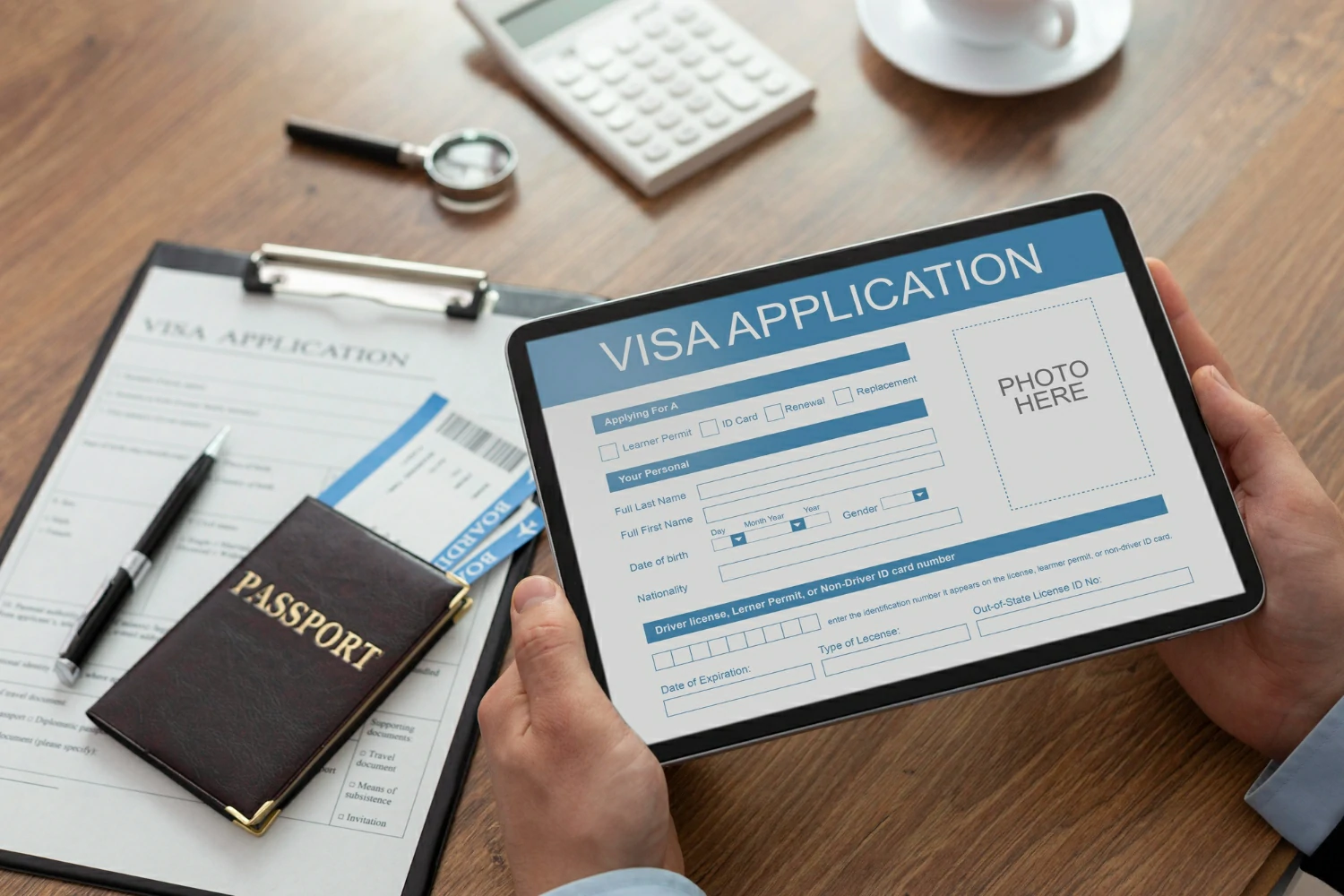How to Find the Best Travel Insurance? Answer is – Finding the best travel insurance means carefully assessing your needs and comparing policies from different providers. Consider the cost of your upcoming trip, your destination, the potential risks involved, and any pre-existing medical conditions you have. Look for policies that provide adequate coverage in the areas of trip cancellation, medical emergencies, lost or stolen luggage, and any other concerns specific to your travels. Use comparison websites and read reviews to help you find reputable insurers with the best coverage to suit your budget.
Summary
- Understand what travel insurance covers and why it’s important.
- Determine the right level of coverage based on your trip and individual needs.
- Compare policies from multiple providers using online tools.
- Carefully read the fine print of any policy before purchasing.
- Consider additional coverage options like “cancel for any reason” if applicable.
Finding the Right Travel Insurance

Imagine you’ve saved for months, meticulously planned your dream vacation to the Maldives, and the day before departure, a sudden illness leaves you bedridden.
Or, perhaps you’re enjoying a European adventure when your luggage, containing your passport and valuables, goes missing at the airport.
These scenarios highlight the value of travel insurance – a safety net designed to protect you (and your travel investment) from the unexpected.
What is travel insurance?
Travel insurance is a type of insurance policy that provides financial protection against a range of mishaps that could occur before or during your trip. It’s not a replacement for your health insurance, but rather a supplement designed specifically for the risks associated with travel.
Travel insurance plans typically include various types of coverage, such as:
Trip Cancellation/Interruption: Reimburses you for non-refundable trip costs if you have to cancel or cut your trip short due to covered reasons like illness, injury, natural disasters, or unforeseen events.
Medical Expenses: Covers the cost of emergency medical treatment, hospitalization, and even medical evacuation if you become ill or injured while traveling. This is especially crucial in countries where your regular health insurance may not provide coverage.
Baggage Loss/Delay: Provides reimbursement if your luggage is lost, stolen, damaged, or delayed during your journey.
Personal Liability: Offers protection if you accidentally cause damage to someone else’s property or injure someone while traveling.
Travel Delays: Helps cover additional expenses like meals and accommodations if your flights are delayed or canceled due to covered reasons.
Why is travel insurance important?
Travel insurance safeguards against the financial and logistical burdens that can arise from unexpected events during a trip. Here’s why it’s worth considering:
Protects Your Investment: Trips can be expensive, especially international ones. Travel insurance helps ensure you don’t lose out on non-refundable costs if unforeseen circumstances force you to cancel.
Peace of Mind: Knowing you have a safety net can reduce stress and anxiety, allowing you to fully enjoy your travels.
Medical Emergencies Abroad: Healthcare costs outside your home country can be astronomical. Travel insurance can help cover these expenses, potentially saving you thousands of dollars. Example: Cost of Medical Treatment Abroad – International Citizens Insurance.
Lost or Stolen Belongings: Baggage issues can ruin a trip. Having insurance mitigates the financial impact of lost or stolen items.
Unpredictable Events: From flight cancellations due to weather or strikes to sudden political unrest, travel insurance can provide support when plans go awry.
Sarah Smith Expert Opinion
“Travel insurance is an often-overlooked necessity,” says Sarah Smith, a seasoned travel advisor at Wanderlust Adventures. “It’s the difference between a minor inconvenience and a major financial setback when things don’t go according to plan during your travels.”
Determining Your Travel Insurance Needs

Choosing the right travel insurance requires understanding your individual needs and the potential risks involved with your trip. Here’s how to carefully assess those factors:
1. What type of trip are you taking (domestic vs. international)?
Domestic Travel: While less inherently risky than international trips, domestic travel can still benefit from travel insurance. Trip cancellation/interruption coverage is valuable when unforeseen events occur, even within your own country. Additionally, medical emergencies can drain your finances regardless of where they happen if your regular health insurance has gaps.
International Travel: Coverage becomes even more crucial with international travel. Your regular health insurance likely won’t extend abroad, and unforeseen medical issues could leave you facing staggering costs. Evacuation coverage is also essential if you require specialized medical transport back home.
2. What is the length of your trip?
The longer your trip, the higher the chance of something unexpected happening.
If you’re investing in a once-in-a-lifetime multi-week adventure, having a safety net in the form of travel insurance is especially wise.
Short weekend getaways may still benefit from insurance, but the potential need is slightly lower.
3. What is the total cost of your trip?
High-Cost Trips: The financial risk increases the more you’ve spent on travel. Trip cancellation/interruption coverage offers protection if you have to cancel your expensive itinerary due to a covered reason.
Budget Trips: Even less expensive travel can be impacted by disruptions. If the idea of losing out on non-refundable flights or deposits is a concern, even basic travel insurance can provide peace of mind.
4. Do you have any pre-existing medical conditions?
Importance of Disclosure: Be upfront about any pre-existing health conditions when purchasing travel insurance. Some policies may exclude coverage related to these conditions, or you may need a specific waiver to have them covered.
Finding Suitable Coverage: If you do have pre-existing conditions, look for companies specializing in travel insurance that cater to your needs. Consider consulting a travel insurance agent who can help you find the right policy.
5. What are your biggest concerns or potential risks?
Adventure Travel: If you’re planning activities like hiking, white water rafting, or skiing, ensure your travel insurance covers injuries sustained during these activities.
Destination-Specific Risks: Research your destination. Is there a heightened risk of petty theft in a particular city? Are natural disasters common during certain seasons? Tailor your coverage to address these potential risks.
Personal Worries: Think about your own anxieties. If you often worry about missing flights, travel delay coverage can bring peace of mind. If your luggage often gets lost, focus on policies with solid baggage loss coverage.
Martin Fischer Expert Opinion
“Don’t just purchase a generic travel insurance policy,” advises Martin Fischer, insurance specialist at Safe Travels Insurance Brokers. “Think critically about your individual trip and prioritize the coverage that aligns with the true risks you might face.”
Types of Travel Insurance Coverage

Understanding the different types of protection available is essential when choosing a travel insurance policy. Here’s a breakdown of the core coverages you’ll encounter:
1. Trip Cancellation/Interruption Insurance
What it covers: Reimbursement for non-refundable trip costs if you must cancel or interrupt your trip due to covered reasons. These reasons typically include illness, injury, natural disasters, jury duty, or unforeseen events affecting your destination.
Why it’s important: Protects your significant financial investment in a trip, especially if you’ve paid upfront for flights, hotels, cruises, or tours.
2. Medical Insurance
What it covers: Pays for emergency medical treatment, hospitalization, and even prescription medication if you become ill or injured during your travels. Covers costs your primary health insurance might not when you’re out of the country.
Why it’s important: Medical expenses abroad can be incredibly high, especially in countries like the United States. Having this coverage protects you from crippling bills due to medical treatment during your trip.
3. Evacuation Insurance
What it covers: Arranges and pays for medically necessary transportation to a suitable hospital or even back to your home country if you become seriously ill or injured during your trip.
Why it’s important: If proper medical treatment isn’t available locally at your destination, evacuation can be a lifesaver. It’s especially crucial for adventure travelers or those visiting remote areas.
4. Baggage Loss/Delay Insurance
What it covers: Provides reimbursement for lost, stolen, or damaged luggage and personal belongings. Might also cover expenses incurred if your baggage is delayed, such as buying essential toiletries or clothes.
Why it’s important: Even the most seasoned travelers can face luggage woes. This coverage offers financial protection if your belongings disappear or if you’re temporarily without them.
5. Rental Car Insurance
What it covers: Protection against damage to or theft of a rental car. This can sometimes provide better coverage than relying solely on your credit card’s rental car benefits or the rental company’s offered insurance.
Why it’s important: Can save you money in case of an accident or if your rental vehicle is stolen. Consider this if you’re planning on doing extensive road trips during your travels.
6. “Cancel for Any Reason” (CFAR) Insurance
What it covers: Provides reimbursement for a higher percentage (usually around 75%) of your non-refundable trip costs if you decide to cancel your trip for any reason, even reasons not typically covered under standard trip cancellation.
Why it’s important: Offers ultimate flexibility, but comes with a higher price tag than standard policies. It might be a worthwhile option for very expensive trips or if you’re particularly concerned about having to cancel.
Beth Williamson Expert Opinion
“Don’t assume every type of coverage is automatically included in a standard travel insurance policy,” warns Beth Williamson, travel insurance advisor at Horizon Insurance. “If there’s a specific risk you’re worried about, always verify with the insurance provider that your policy provides the type of protection you need.”
How to Find the Best Travel Insurance Policy

Choosing the right travel insurance policy doesn’t have to be overwhelming. Here are some effective strategies to help you find the perfect plan for your needs and budget:
1. Using travel insurance comparison websites
What they are: Websites that aggregate quotes from numerous insurance providers, allowing you to compare policies side-by-side based on price, coverage, and features. Popular options include:
Why they’re useful: These sites save time and effort. They give you a quick overview of the market and help narrow down your choices.
2. Getting quotes directly from providers
How it works: Visit the websites of individual travel insurance companies and get customized quotes based on your trip details and coverage needs.
Why it’s useful: While comparison websites are excellent, going directly to a provider can sometimes offer additional discounts or specialized plans that might better suit your needs.
Popular Companies: Some highly reputable travel insurance providers include:
3. Consulting with a travel insurance agent
Who they are: Professionals specializing in travel insurance who can analyze your needs and recommend policies from different companies.
Why they’re useful: Especially helpful if you have complex travel plans, pre-existing medical conditions, or specific concerns that require tailored advice. Agents often have access to a wider range of policies than you’ll find on comparison websites.
How to find one: Ask your regular insurance agent, seek referrals from travel agencies, or search online associations like the American Society of Travel Advisors (ASTA).
4. Checking your credit card benefits
The hidden perk: Many credit cards offer basic travel insurance benefits like trip delay protection, lost luggage coverage, or limited rental car insurance.
Why it matters: You might already have some coverage without realizing it. Before buying a separate policy, carefully review your credit card benefits to see where there might be overlaps, allowing you to save money.
Emily Anderson Expert Opinion
“Comparing multiple options is the key to getting the best value from your travel insurance,” says Emily Anderson, founder of the travel website JourneyWoman. “Don’t automatically go with the first quote you see – invest time in research to find a policy that truly works for you.”
Factors That Affect Travel Insurance Costs

Travel insurance premiums aren’t one-size-fits-all. Several elements play a role in determining your final policy cost. Here’s how to make sense of the price variations:
1. Your age
The General Rule: Travel insurance premiums typically increase with age. Older travelers are often considered a higher risk by insurance providers due to the potential for increased medical needs.
Age Brackets: Many companies categorize travelers into age brackets (e.g., under 50, 50-65, 65+) with premiums increasing within each bracket.
2. The length of your trip
Longer Trip = Higher Cost: The duration of your trip directly impacts the premium. Since the longer you’re away, the higher the chance of something going wrong, extended trips naturally cost more to insure.
Annual Policies: If you’re a frequent traveler, an annual travel insurance policy might be more cost-effective than buying individual trip coverage each time.
3. Destination
Risk Assessment: Countries with perceived higher risks – due to political instability, natural disasters, or higher healthcare costs – will result in higher premiums.
Healthcare Costs: Destinations like the United States, where medical treatment is exceptionally expensive, lead to increased premiums to cover potential medical emergencies.
Travel Advisories: Check for official travel advisories for your destination, as they can signal an increased risk and influence insurance costs. Resources:
4. Coverage levels
Basic vs. Comprehensive: As you’d expect, the more comprehensive the coverage, the higher the cost. Basic plans with minimal coverage will be cheaper than those offering trip cancellation, extensive medical coverage, evacuation, and baggage protection.
Customizable Coverage: Many providers let you adjust coverage limits (like the maximum for medical expenses) to affect the premium. Consider your risk tolerance and how much financial protection you truly need.
5. Pre-existing medical conditions
Increased Risk: Travel insurance premiums are often significantly higher for those with pre-existing medical conditions since they represent an increased risk of needing medical care during a trip.
Disclosure is Key: Always be honest about pre-existing conditions. Failure to disclose them could invalidate your coverage.
Specialized Coverage: Some companies provide tailored policies for travelers with pre-existing conditions, although these can be more expensive.
Laura Smith Expert Opinion
“It’s tempting to choose the cheapest travel insurance policy, but that might not offer the protection you need,” cautions Laura Smith, a certified insurance counselor at Atlas Insurance. “Balancing cost with adequate coverage levels, especially based on your health profile and destination, is crucial.”
Tips for Choosing the Right Travel Insurance

Finding the perfect travel insurance plan doesn’t have to be stressful. Follow these strategies to make a well-informed decision:
1. Read the policy thoroughly
The Fine Print Matters: Don’t just skim the brochure. Take the time to carefully read the entire policy document, sometimes called the “Certificate of Insurance” or “Description of Coverage.” This is where you’ll find the crucial details.
Pay Attention to
- Coverage Limits: What are the maximum amounts the policy will pay out for things like medical expenses, trip cancellations, or lost luggage?
- Definitions: How does the policy define key terms like “pre-existing condition” or “covered reason” for cancellation?
- Claims Process: What are the steps involved in filing a claim, and what documentation will you need?
2. Understand exclusions
Not Everything is Covered: Be aware of situations or events that your policy explicitly will not cover. These exclusions vary between providers, but common ones might include:
- Acts of war or terrorism
- Extreme sports injuries if you didn’t purchase specific adventure coverage
- Losses incurred due to intoxication
- Pre-existing medical conditions (unless you specifically obtained coverage for them)
Ask Questions: If you’re unsure whether a potential scenario related to your trip would be covered, contact the insurance provider for clarification before purchasing.
3. Compare quotes from multiple companies
Shop Around: Don’t settle for the first quote you receive. Utilize comparison websites (see Section 3 of this guide) and get quotes directly from several reputable providers.
Beyond Price: Compare not just the cost, but also the specific coverage, exclusions, and policy limits offered by each company. A slightly more expensive policy might provide significantly better protection.
4. Purchase your policy early
Time is of the Essence: The sooner you buy travel insurance, the better. Some benefits, like “cancel for any reason” coverage or waivers for pre-existing conditions, usually require you to purchase your policy within a specific timeframe after booking your trip (often 14-21 days).
Early Bird Benefits: Buying early can occasionally offer better rates and ensure you are protected in case of unexpected events that might occur even before your trip departs.
Brian Thompson Expert Opinion
“The best travel insurance isn’t necessarily the cheapest one,” says Brian Thompson, a seasoned travel blogger at Adventure Bound. “It’s the one that provides the protection you realistically need, from a company with a solid track record of taking care of its customers.”
FAQs
Q: Do I really need travel insurance?
While not legally mandatory in most cases, travel insurance is strongly recommended, especially for international travel or expensive trips. It acts as a financial safeguard against the unpredictable – from medical emergencies and flight cancellations to lost luggage. Consider it an investment in protecting your travel plans and finances.
Q: Is there a difference between travel insurance and travel medical insurance?
Yes! Travel insurance is a broader umbrella term that typically includes a combination of coverages like:
- Trip Cancellation/Interruption
- Medical Expenses & Evacuation
- Baggage Loss/Delay
- Rental Car Protection
Travel medical insurance is a specific type of coverage focused primarily on medical expenses incurred while traveling. It may offer limited trip cancellation coverage but usually not to the same extent as a comprehensive travel insurance policy.
Q: How much does travel insurance cost?
The cost varies greatly based on the factors discussed in Section 4 of this guide. As a general rule of thumb, expect to pay around 4-8% of your total trip cost for a comprehensive policy. For example, if your vacation costs $5,000, your travel insurance premium could range between $200-$400.
Q. Can I buy travel insurance after I’ve already started my trip?
Generally, no. Most travel insurance policies must be purchased before your departure date. However, a few companies offer limited coverage that you can purchase while already traveling, but the options and coverage will be far more restricted.
Q: What if I have a pre-existing medical condition?
It’s crucial to disclose pre-existing conditions when buying insurance. Some policies may exclude coverage for them entirely. Look for companies specializing in travel insurance for those with pre-existing conditions. Consider consulting a travel insurance agent to help you find suitable options.
Conclusion
Travel insurance may seem like an extra expense, but the potential cost of not having it when things go wrong can far outweigh the price of the policy.
Think of it as buying peace of mind. By following the guidance in this article, you can find the most suitable travel insurance to protect your upcoming adventures.
Remember
- Assess Your Needs: Consider your trip details, destination risks, and health profile.
- Compare Policies: Obtain quotes from multiple reputable providers, looking beyond just the price.
- Read the Fine Print: Understand coverages, exclusions, and policy limits before purchasing.
- Don’t Delay: Purchase insurance as early as possible to maximize benefits and options.







